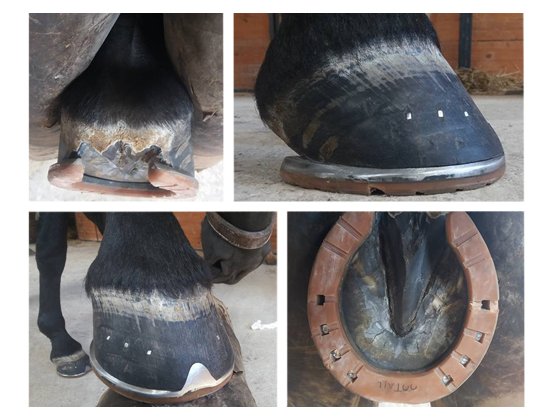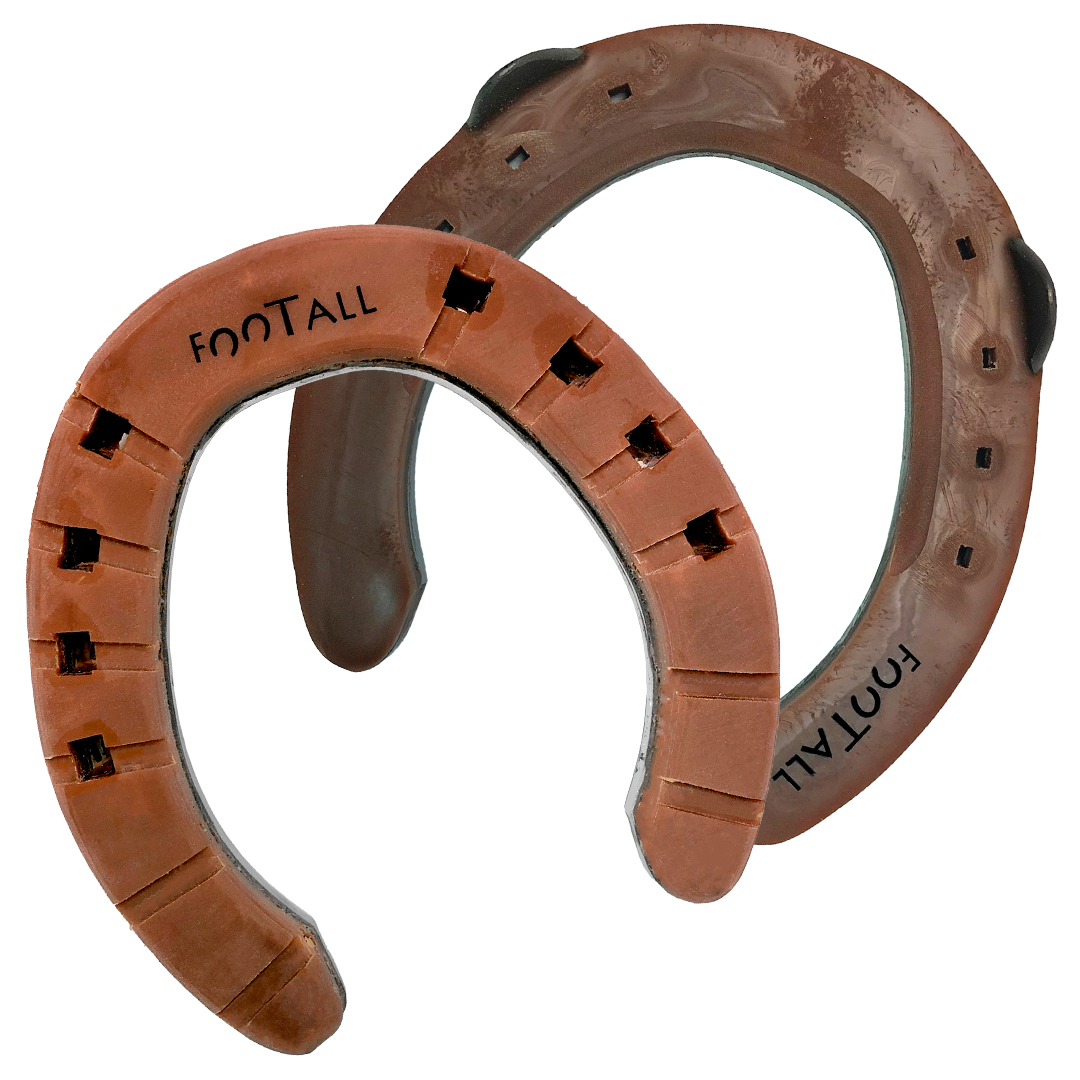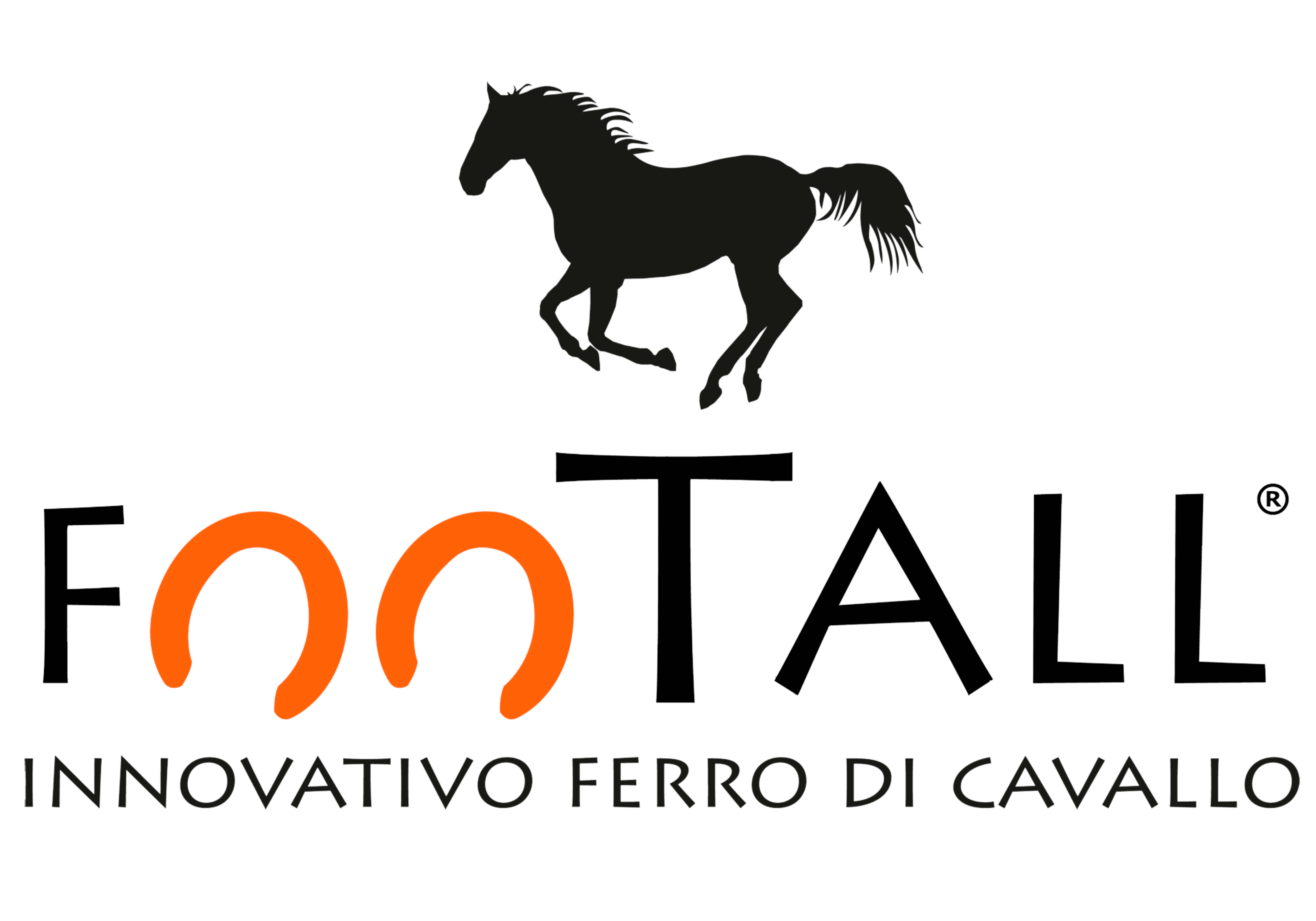
Some details
Footall irons are composed of two materials: the iron core, which provides stability, and the polyurethane, which thanks to its anti-shock property absorbs shocks and vibrations, relieving the load on the horse's joints and tendons. Footall irons, by reducing the sense of heaviness and fatigue in the limbs, help prevent and alleviate the symptoms of the most important joint pathologies such as osteoarthritis, tendonitis, naviculitis, inflammation of the ligaments, swelling of the clips, etc.

To each his own
There are various types of cold shaped Footall polyurethane horseshoes that can be used both in the competitive field because they have shock-absorbing properties, and on terrains where a particular grip is needed for walks in the countryside and for events.
And it is thanks to the high quality of the materials used for its construction that this iron has excellent resistance to wear and tear and is durable over time.
Characteristics
-
Easy shoeing
Footall irons are easily cold shaped with conventional farrier tools. Furthermore, the application can be easily done with traditional shoeing nails.
-
Iron and polyurethane
The Footall iron is made using a classic iron, used as a base, on which the polyurethane is poured. The polyurethane is then vulcanized and treated to create a single body with the iron.
-
Vibrations hello!
The Footall iron eliminates the typical vibrations of traditional irons that damage the horse's nails and cartilage, by absorbing the impacts it eliminates the shocks causing an immediate beneficial effect on the horse's limbs.
Technical data
-
Polyurethane for shock absorbing irons and insoles 94 shoreA - 45 shoreD
M 100% 11N/mm2
M 300 % 19 N/mm2
Tens. str. 32N/mm2
Elong. 510%
Tear str. 110N/mm2
Shrink 1.2%
Abrasion 40 mm3
CS 24h/ 70°C 17%
SC 70 h/ 23 °C 12 %
-
Polyurethane for non-slip needles 98 shoreA - 55 shoreD
M 100% 16N/mm2
M 300 % 25 N/mm2
Tens. str. 41 N/mm2
Elong. 400%
Tear str. 145N/mm2
Shrink 1.2%
Abrasion 45 mm3
CS 24h/ 70°C 17%
CS 70 h/ 23 °C 9 %.
